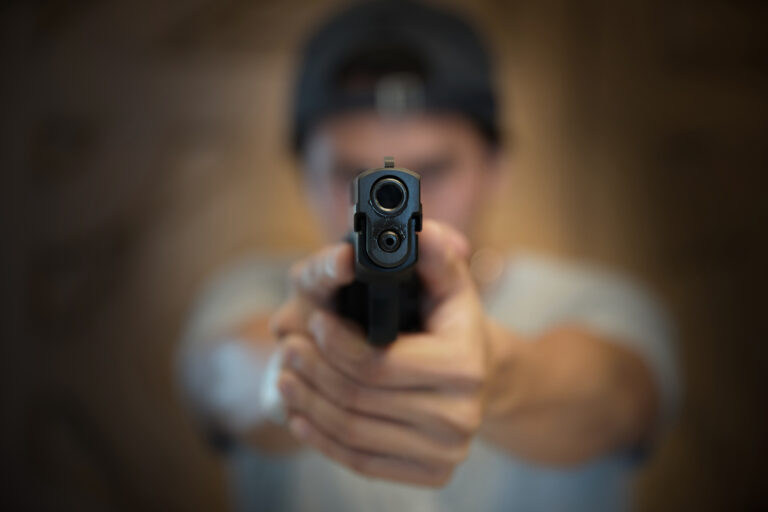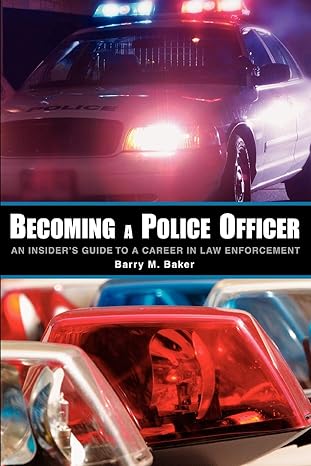
You're going to make mistakes during your career, but don't let any of those mistakes be stupid and totally preventable ones.
~ Barry M. Baker Tweet

Detective Lieutenant Barry M. Baker (ret.) is a 32 year veteran of the Baltimore Police Department.
Shots fired by a police officer in the line of duty must be reported and documented no matter what the circumstances of the shooting may be. The only exception is when you’re firing your service weapon during training. However, if any property damage or personal injury occurs during training, no matter how minor, reporting will be required.
Shots Fired by Border Patrol Agents
In 2006, U.S. Border Patrol Agents Jose Alonso Compean and Ignacio Ramos were sentenced to 12 years and 11 years and one day of incarceration respectively. In 2009, President George W. Bush commuted the prison sentences of both former agents. In 2020, President Donald J. Trump pardoned both Compean and Ramos.
Why did Compean and Ramos go to prison? Well, the simple answer is that they failed to report shots fired when they fired their weapons in the line of duty. It all started in 2005 when they intercepted a Mexican drug smuggler transporting over 700 pounds of marijuana from Mexico into the United States. After a vehicle pursuit, a foot pursuit ensued. It was during the foot pursuit that there were shots fired by the agents.
The last round, fired by Ramos, found its mark in the drug smuggler’s buttock. It didn’t stop the suspect, and he continued on making his escape back into Mexico. The U.S. Government would expend considerable effort to identify and locate the drug smuggler. The government provided the suspect with immunity from prosecution, and it even provided surgical removal of Ramos’ bullet from his buttock.
No Excuse for Covering up Shots Fired
Compean and Ramos were not rookies, so there was no excuse for their failure to report the shots fired. They compounded that fateful mistake by picking up and disposing of their ejected shell casings. The Report of Investigation from the Office of Inspector General, Department of Homeland Security, is an interesting read. Of course, the government threw everything against the agents both criminally and administratively.
One thing is certain. Had the agents reported the shots fired, they would not have gone to prison. By failing to report and removing evidence relative to the shell casings, they sacrificed their credibility regarding anything they had to say afterward. Sure, they tried to justify the shots fired after the fact, but who would believe them? As a police officer, you’ve got to understand that the preservation of your credibility means everything.
Some Cops get Lucky
A new Baltimore police officer found himself involved in a shots fired incident where he failed to report firing his weapon. The circumstances were different from the Border Patrol incident. It would be determined that the officer only violated an administrative requirement that he report firing his weapon.
The officer was trying to arrest a man for a relatively minor crime. The man resisted the officer, and they got involved in a violent struggle. As they rolled around on the ground, the suspect got on top of the officer where he applied a very effective choke hold. The officer could not break the choke hold, and he felt himself losing consciousness.
The only means of defense left to the officer was his service revolver. Just as he was about to pass out, the officer got his revolver out of the holster, and he pulled the trigger. As soon as the weapon discharged, the suspect rolled off the officer onto his knees and surrendered.
The officer held the suspect at gunpoint; until, help arrived, and the suspect was transported to the station house. The suspect went through the booking process with the desk sergeant as the turn-key (cell block officer) made a thorough search of the suspect’s clothing. After booking, the turn-key fingerprinted the suspect and placed him into a cell.
I need to go to the Hospital
About two hours passed when the suspect called out the familiar cell block refrain, “Turn-key.” “Yea, what do you want,” asked the turn-key? “I need to go to the hospital.” The turn-key asked the obvious, “Why?” I’m shot,” replied the suspect.
People in police cell blocks often come up with some good ones, and the turn-key didn’t believe the suspect. After much insistence that he was telling the truth, the turn-key said, “Okay, show me.” The suspect dropped his pants and pressed his thigh against the bars to give the turn-key a close look.
The turn-key had seen enough bullet wounds to realize that he was looking at one now. When he asked the suspect who’d shot him, he had to pause to comprehend the suspect’s reply. The turn-key then chastised the suspect, “”Why didn’t you say something sooner?” The suspect answered, “It didn’t hurt at first, but now it’s really hurting.”
Like the Border Patrol agents, this officer failed to report shots fired. What this officer had going for him was a competent supervisor who conducted an immediate, competent and thorough investigation. In the end, after interviewing the suspect, responding officers, the desk sergeant, and turn-key, it was clear that the only violation by the officer was his failure to report the discharge of his weapon.
A Suspect of Good Character
All the interviews, including that of the suspect, made it clear that the officer believed the bullet he’d fired had been discharged harmlessly into the ground. In fact, the suspect turned out to be the best witness. He verified the officer’s reason for resorting to deadly force, and his [suspect’s] belief that the officer did not know he’d shot him.
The officer, being so new an inexperienced, used poor judgement. However, he made no effort to cover up anything, and he was really lucky. Aside from having a good sergeant, the suspect, who had no qualms about choking out a police officer, ended up displaying good character by being completely truthful. Because he had so much going for him, this police officer would receive minimal disciplinary action, and he would go on to enjoy a long and productive police career.
You’re going to make mistakes during your career, but don’t let any of those mistakes be stupid and totally preventable ones. Failing to report shots fired by you in the line of duty is certainly one of those stupid mistakes.
Related Content for Shots Fired
Advertisements


